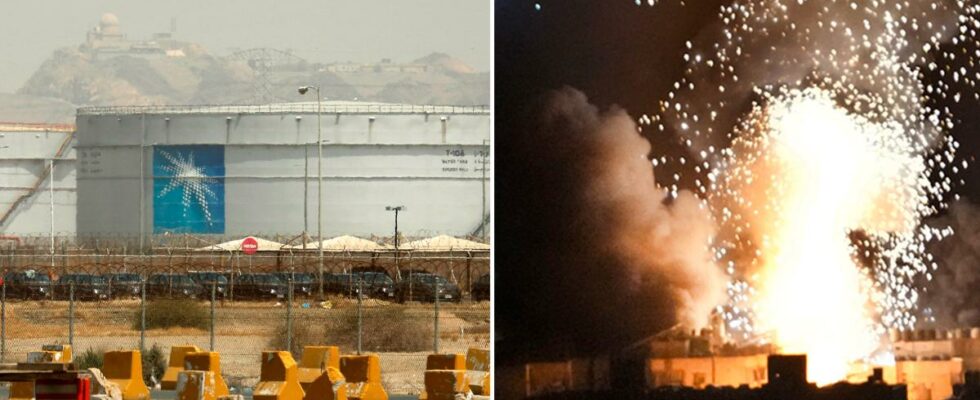unsaveSave
expand-left
full screen Oil tanks photographed in Saudi Arabia. Photo: Amr Nabil / AP
Saudi Arabia threatens with record cheap oil.
Israel and Iran’s allies are instead threatening a war that will make it record high.
This winter, the price of petrol may drop to SEK 15 – or rush towards SEK 20.
– The worst scenario would be if there is a stop to transport out of the Middle East, the region accounts for 30 percent of the world’s oil production, says Christian Kopfer, commodity analyst.
The world is holding its breath waiting for Israel’s revenge on Iran, after the massive missile attack on October 1st.
If Israel strikes Iran’s oil industry, Iraq’s powerful and Iran-backed Shia militia Kataib Hezbollah threatens an “energy war” that will deprive the world of “12 million barrels of oil a day,” according to Washington Post.
– Either everyone gets to enjoy the blessings of energy, or no one gets to, says Abu Ali al-Askari from Kataib Hezbollah.
Handelsbanken’s commodity analyst Christian Kopfer says that it would be very unfortunate if the conflict spreads so much that the oil countries in the Middle East cannot get their products to the outside world.
A scary example is Iran and its allies closing the Strait of Hormuz and attacking Saudi oil facilities.
– The Middle East accounts for 30 percent of the world’s oil production, the oil market cannot swallow that loss, it affects the entire world economy, says Kopfer to Aftonbladet.
For Aftonbladet, Kopfer has calculated how increased oil prices affect the wallets of ordinary Swedes.
– If oil rises to 100 kroner per barrel, from today’s price of about 80 dollars, then the price of petrol will rise to 19-19.50 kroner, given that the dollar exchange rate is at the same level, he says.
How is the price affected if 30 percent of the supply disappears from the market?
– If the Strait of Hormuz is closed for a longer period, the danger is that it will quickly exceed 100 dollars, and then petrol risks costing over 20 kroner.
expand-left
full screen Two years ago there were record high fuel prices in Sweden. Photo: Fredrik Sandberg/TT
expand-left
fullscreen Explosions in Beirut. Photo: Hussein Malla / AP
However, it is not all dark clouds in the oil sky. The Wall Street Journal reports that Saudi Oil Minister Abdulaziz bin Salman this week threatened a price war in which they dump the price to $50 a barrel.
The oil minister accuses the Opec membersinfocloseOpec membersOpec stands for the Organization of the Petroleum Exporting Countries, an association that today consists of 12 of the world’s oil producers, including Saudi Arabia and Iraq. A further number of countries participate in a cooperation called Opec+ without being members, including Russia and Kazakhstan. Iraq and Kazakhstan to produce too much oil, while the United States floods the market with cheap fracked extractedinfoclosefracked extractedFracking, or hydraulic fracturing, is a method of injecting water, sand and chemicals under high pressure to extract shale oil and natural gas that has previously been too expensive to produce for the oil industry. The method is considered to have a very negative impact on nature, including the risk of groundwater contamination. oil.
– The Saudis want to teach the US a lesson. By putting oil on the market, the growth of the American fracking industry can be stopped.
What does this mean for Swedish consumers?
– If oil drops to 50 dollars per barrel, the petrol price will probably be 15-15.50 kroner.
How quickly do these price changes reach the gas pumps?
– It only takes a few days.
Which scenario do you think is most likely?
– I can’t answer the probability that there will be a major war, but if there is a serious disruption to oil deliveries, then we will probably quickly rise to over three figures per barrel.
– On the other hand, there is a significant risk of some kind of price war where Opec wants to take back market shares. The Saudis have already signaled that they will start screwing up. on the taps at the end of the year. What speaks against a price war, model larger, is that none of the producers will profit from it.
